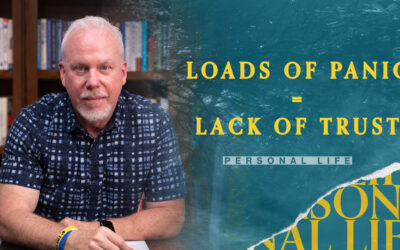I’m seeing some great leadership during the coronavirus lockdown. And, these leaders don’t only rely on their past experience. How do I know that? I know that because none of us have ever faced a pandemic. Especially in a pandemic, doing what you did and basing current decisions on past experiences won’t work. Instead, these leaders find the best solutions. As a matter of fact, great leaders don’t look to their past for solutions. Great leadership sees the future and adapts or adopts new ways to get there. Interestingly, your view of leadership happens similarly to how you view chili.
Your View of Chili Shows Your Background
Your view of leadership and chili tells you quite a bit about your family of origin: what they liked, their work, how they were reared and in what part of the country they originated. My early years saw me inside the capitol beltway, since I was born in Washington, D.C. We then moved to West Virginia (for the rest of third grade). Then, I started fourth grade in Southern Ohio. Although the places were different, the chili recipes were the same. It wasn’t until I moved to Texas that I found a new chili.

I don’t know if you can tell from the pictures, but Texas chili differs in two key features from Midwest and East Coast chili;
- 1-Use stew meat or round steak instead of ground beef.
- 2-Never use beans.
Your Background Affects How You Lead
From my birth in Washington, D.C. and growing up in Ohio, chili always contained beans. On the other hand, I lived a large portion of my adult life in Texas. All my Texas friends know chili NEVER includes beans.
As a matter of fact, if you submit a Midwest/East Coast recipe in a Texas Chili Cook-Off, you will be immediately disqualified, just for having beans.

Now, if you’re from the Midwest or East Coast, you’ve probably never heard of making chili without beans. If you’re from Texas, you’ve probably never heard of making chili with beans. (I love them both, by the way, and have great recipes for both, which I’ve attached).
But, just because you’ve never heard of it doesn’t mean it doesn’t exist.
That statement also holds true for leadership. And, from my experience working with hundreds of church leaders, this makes a HUGE difference in the effectiveness of their leadership.
Effective churches/businesses/non-profits benefit from effective leadership. Whereas, many other churches may have never seen effective leadership.
Your Words Show Your Limitations
See if you recognize any of these:
- “We do a lot of things, but I feel like I’m shooting in the dark.”
- “Some things are going well and some things aren’t. I don’t know how to make sense of it or get us on a steady growth path.”
- “We don’t count how many people attend.”
- “I think other churches grow (only) because God blesses them.
- “I’m not used to (or ‘don’t feel comfortable’) holding people accountable.”
- “We don’t have a budget.”
- “I’ve never seen a budget where you pay attention to the line items.”
- “Even though I’m the leader, I don’t think I’m the one who should have to deal with the problem.”
- “We just need to pray (or witness or preach the Word or minister to people) and the church will grow.”
- “I’ve found that if you leave problems alone, they have a way of working themselves out.”
- “Everybody is willing to help with whatever we need.”
- “I’ve really focused on ministering to them, and they still cause problems.”
The commonality?
Each statement demonstrates a mindset that prevents effectiveness. Consequently, the church’s or organization’s mission suffers.
For another example, consider this discussion with leaders at the first church I pastored. I was 26 years old. And, the church’s records showed a 25 year decline for the church…in every area. In my newness, I recruited a Vacation Bible School director. Here’s how the discussion went:
Leaders: “I’ve never heard of the pastor not being the VBS director.”
Me: I’ve never heard of the pastor being the VBS director.”
(So, I recruited a “co-director” and had him lead it.)
Find the Best Solutions
As you can see, a leader’s comfortability or knowledge should not determine how well your church or organization fulfills its mission. But, that’s often what happens. Instead, it’s best to fulfill the mission God entrusted to us. And, we can increase our leadership when we expand our experience and gain leadership insight from others.
We increase our leadership when we expand our experience and gain leadership insight from others.
But, what happens if you don’t have a leadership background? I totally get where you’re coming from. Your challenge has been my challenge. For me, my growing up years were influenced by good, godly people. Unfortunately, those folks did not have experience leading effective ministry. And, what made matters more difficult for me, they taught (usually by example) you should not do many of the things an effective leadership requires. Here is a sampling of the things I though were wrong that I now know are necessary for good leading:
- Not allowing someone to do something they feel “led” to do
- Focusing on reaching the people in the community instead of only focusing on the people in the church.
- Recruiting a teacher who had fewer years in the church but a deeper walk with God
- Strategizing to fulfill the mission instead of making a certain group of people happy
- Leading and organizing toward a goal rather than waiting to see if something might happen
Emotional Shifts
If you have a non-leadership background, you know all of these mindsets were tough to shift. What’s more, the hardest part of the shifts were emotional. And, it sometimes felt like I was disloyal to my upbringing if I didn’t do things the way they believed they should be done.
So, what do you do? Since I grew up in an environment that didn’t include many organizational leaders, here are some things I did to expand my experiences which improved my leadership:
- Find great leaders, invite them to breakfast or lunch (I paid). Take a notepad and learn all I can about leadership.
- Read books by leaders I respect
- Attend seminars, even when I went by myself because of distance or cost
- List to books or podcasts from great leaders
- Join a cohort with other leaders
As a leader, you have an entrustment. That entrustment includes our own growth in organizational leadership. Jesus led organizationally. So should we.
So, for you, is your background hindering your leadership? What can you do to expand your perspective, get exposed to other models or learn from solid leaders?
Hope You Enjoy These Chili Recipes.
Texas Chili Recipe
Original Chili Con Carne from Classic Tex Mex and Texas Cooking
- 2 to 3 pounds cubed sirloin or tenderloin
- 1/2 cup (1 stick) butter
- 1 (15 ounce) can tomato sauce or 1 (15 ounce) can diced tomatoes with liquid
- 2 onions, chopped
- 4 to 6 cloves garlic, minced
- 4 tablespoons chili powder
- 1 tablespoon ground cumim
- 2 teaspoons oregano
- 1 teaspoon salt
- 1/2 to 1 cup water, optional
- Brown sirloin in butter in large skillet. Reduce heat to low and add all remaining ingredients, except water.
- Simmer covered for about 2 to 3 hours. Stir occasionally and add water if necessary.
- Remove cover, taste for flavor and adjust seasonings if needed.
Midwest and East Coast Chili Recipe
Halcombe’s Chili
- 1 pound lean ground beef
- 1 pound spicy sausage
- 2 cans (49 ounces) petite diced tomatoes
- 1 (29 ounce) can tomato sauce
- 1 large can tomato paste
- 1 (15 ounce) can Ranch Style beans
- 1 1/2 cups onion, chopped
- 1/8 teaspoon ground cayenne pepper
- 1/2 teaspoon white sugar
- 1/2 teaspoon dried oregano
- 1/2 teaspoon ground black pepper
- 1 teaspoon salt
- 1 1/2 teaspoons ground cumin
- 1/2 cup chili powder
- Place ground beef in a large, deep skillet. Cook over medium-high heat with the onion until evenly brown. Drain, and crumble.
- In a large pot over high heat combine the ground beef, tomatoes, tomato sauce, Ranch Style beans, cayenne pepper, sugar, oregano, ground black pepper, salt, cumin and chili powder. Bring to a boil, then reduce heat to low.
- Then, simmer for 1 1/2 hours. (Note: If using a slow cooker, set on low, add ingredients, and cook for 8-10 hours.)




